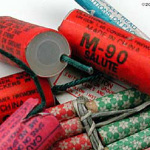International Group blames high Child Mortality in Nigeria on poor Sanitary condition
Featured, Latest Headlines, News Friday, October 18th, 2013
By Eric Ojo
The Nigerian chapter of WaterAid, an international non-governmental organization (NGO) has attributed the high death rate of children in Nigeria to poor sanitary condition, lack of access to clean water and other related factors underpinning unhygienic behavioural tendencies.
WaterAid is currently working in 27 countries in Africa, Asia and the Pacific region to improve communities’ quality of life through lasting improvements to water, sanitation and hygiene education using local skills and practical, sustainable technologies. The NGO which has been working in Nigeria since 1995, presently operates in over 100 communities and about 30 local governments areas (LGAs) in six States in the Federation through the facilitation of its chapter, WaterAid Nigeria.
Pneumonia.org estimates that over 868,000 Nigerian children die each year, about a quarter of which are from water related and vaccine preventable diseases such as pneumonia, diarrhea, meningitis and measles. Similarly, the World Health Organization (WHO) estimates that diarrheal diseases caused the deaths of around 124,400 children under five years old in Nigeria in the 2008. The indirect effects of malnutrition – to which poor water and sanitation contribute 50 per cent according to WHO – cost a further 37,000 lives
Country Representative of WaterAid Nigeria, Dr. Michael Ojo who made the observation during activities organised in Abuja, by its organization to mark the 5th Global Handwashing Day, noted that the high child death rate in the country would have been prevented with improved access to safe drinking water and better hygiene.
According to him, “too many children in Nigeria still die every year before their fifth birthday as a result of diarrhoea and other diseases related to unsafe water and a lack of basic sanitation and hygiene. What is even sadder is the lack of access to simple measures such as hand washing with soap which can help prevent diarrhoea, pneumonia, and other diseases that stop many children from reaching their 5th birthday”.
Dr. Ojo called for the increase practice of Handwashing with soap, which he said was, “the most effective and inexpensive way to prevent diarrhoeal and acute respiratory infections, which take the lives of millions of children in developing countries every year. Together, they are responsible for the majority of all child deaths”.
In his word: “Turning hand washing with soap before eating and after using the toilet into an ingrained habit could save more lives than any single vaccine or medical intervention, cutting deaths from diarrhoea by almost half and deaths from acute respiratory infections by one-quarter. A vast change in hand washing behaviour is critical to meeting the MDG of reducing deaths among children under the age of five by two-thirds by 2015.
Continuing he said: “We must ensure that we promote long-term behaviour change throughout the year and as a crucial part of everyday life. The call is for us to come alive to our responsibilities – our responsibility to join clean hands to promote awareness about the simple, affordable and yet life-saving practice of hand washing”.
Meanwhile, “The Power is in Your Hands” was the theme for Global Handwashing Day 2013. The event which is celebrated on the 15th of October every year, this time around emphasized that, everyone has the power to create healthier communities through hand washing with soap. In other words, everyone can improve their own health by washing hands with soap, especially after using the restroom and before touching food.
Related Posts
Short URL: https://www.africanexaminer.com/?p=3159























